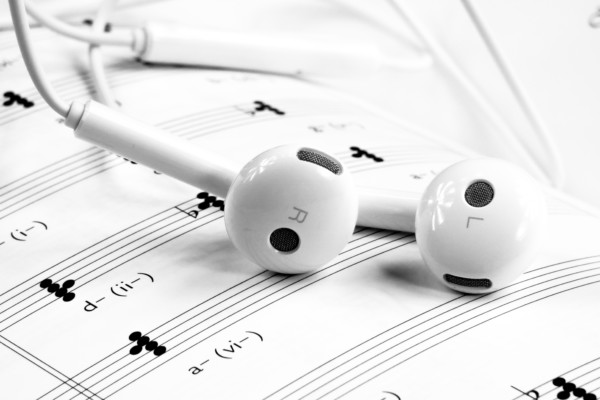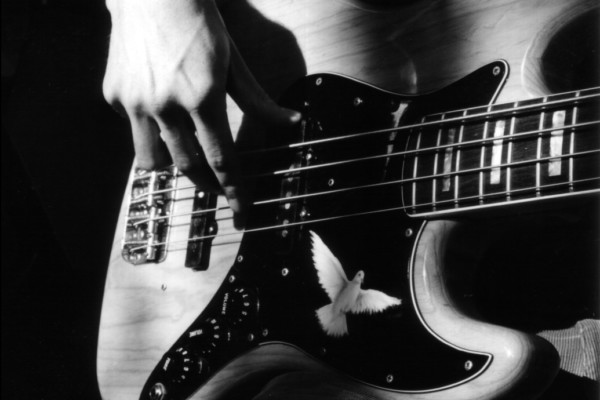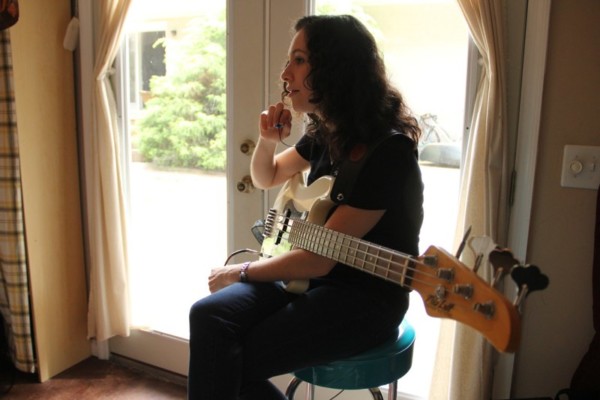Learning Music by Writing Down Your Transcriptions
Q: I have been practicing bass on my own for two years while attending college. My goal is to become a working musician and I would like to at least get a gig at a church this year. I’m at a point now where I can hear a piece of music and get pretty close to the right note the first time. I can recognize patterns, and though I can’t sight-read, I can read music. I feel like its definitely time to learn some songs. So, I wanted to get in the habit of transcribing to make learning songs a little bit easier. Unfortunately, I have no idea what I’m doing. I have read some of your columns and you mentioned: 1. Listen to it, 2. Play it, 3. Transcribe it. What I wanted to know was how would I write a transcription down on paper? And are there any books that could help me with this?
A: I think it would be a worthy study for you to develop your reading and start by writing down bass lines, melodies and/or solos in notation. Working out the kinks as you agonize over how to notate a rhythmic phrase and put the music to paper is extremely helpful in learning how to read. Sight-reading is all about association. You associate the note on the middle line as a D (in bass clef) and you associate this rhythmic notation with that rhythmic sound.
Learning to read helps you to become fluent in your language. It also helps you to learn faster as you can read more intense books on musical study (most of which abandon tab).
But, reading isn’t the be-all and end-all, and not every musician has to learn to read. Ultimately, I think that you should decide how far you want to go with music and how much time you have to devote to it. If the answer is “as far as I can humanly get” and “as much as it takes”, then start working on the reading and writing of music.
If your answers are more modest, than do whatever works for you. Invent your own way to write it down, use tab, write rhythms in a line and use note names for note heads. It doesn’t really matter. The writing it down is it’s own kind of exercise and, beyond that, is only really useful for publication or for your collection of materials you’ve worked on and can come back to later (or re-learn more easily).
If you take this approach, however, I would double down on the assimilation of the material. Make sure that you can play, sing and think it note for note. Work to get every vibrato, trill and accent just right. In short, internalize it.
Honestly, that’s the most important part in my opinion and that should be the focus whether or not we both writing it down.
I used to use notation when transcribing because I was lazy and didn’t internalize the music well enough. I would just write it down, note by note, over time and then read it through a bunch of times and move on. That was the wrong way to do it.
I would suggest that you work on transcription (learning by ear, whether you notate it or not) in digestible phrases. Take a one, two or even four bar phrase and figure it out on your instrument, note by note. Run it over and over again until you can play it pretty consistently. Then, if you’re of the mind to do it, write it down and then move on to the next phrase. If you don’t want to write it down, simply move one to the next phrase. I would also stop every so often (say every 8-16 bars) and recap what I’ve figured out so far. Play it from the top and make sure that you can seamlessly connect each section. Rinse and repeat until you have the entire piece under your fingers (and possibly on the page as well).
Either way you go, if you put all of your intention into assimilating the music and understanding it, you can’t really go wrong.
Have a question for Damian Erskine? Send it to [email protected]. Check out Damian’s instructional books, Right Hand Drive and The Improviser’s Path.




I might add that you record yourself playing each phrase that you learn on something as simple as you smartphone and then transcribe to paper from listening to what you played. Eventually you may get to the point where you hear a passage played and are able to transcribe it to paper without touching your bass…sort of like writing down something that is being spoken by someone else. I have a mate who used this method to help develop perfect pitch. I’m not that talented, but doing this helped me to hear intervals and develop relative pitch. I may not transcribe something in the right key, but once I know the key, I just transpose what I wrote.
You’re right though to make transcripts have to master quite well solfeggios, music theory and music reading .I have completed three years of musical academy and still can not say I’m good for a correct transcription of a musical passage where respect both elements of notation, dynamics, rhythm .It can get a result but it is a lot of work .I would say that without reading and transcription stay amateur stage without reproducing anything but to understand what makes
I often transcribe music by ear and key my notation into a program called Finale. It lets me play back the notation and hear the rhythms and notes that I entered. Something like this can be helpful for you because it lets you have instant feedback so you can refine the skill. You can keep making changes until it sounds right.
I think that sight-reading is a must to be able to do all the projects that may come your way. My first experience in sight-reading on the bass came in college when I was asked to play in a two hour musical. I had the benefit of a couple of months to prepare plus a recording of the part played correctly. I could learn to read the notes at my own pace and play along to a recording as a guide. It was slow going at first, but by the end of it, I was reading at full speed like a champ. Ever since, it’s been a valuable skill that I never have lost. Maybe you could find a written part for some long project that you would be fond of playing. Just jumping in and doing could get you there. I hope this helps. Good luck to you.
TranSCRIPTion. The ‘script’ in the word transcription means ‘write’. That makes the title a little strange, considering if you haven’t written a transcription down, you haven’t ‘transcribed’ at all!
I’ve probably mentioned it before, but a book that every “evolving” bassist should have is Rufus Reid’s Evolving Bassist. It covers everything a beginning bassist needs to know and works as well for electric as it does for string bass. I’ve had my copy for many years and I still drag it out as a reference sometimes just to see what happens. Get a copy…